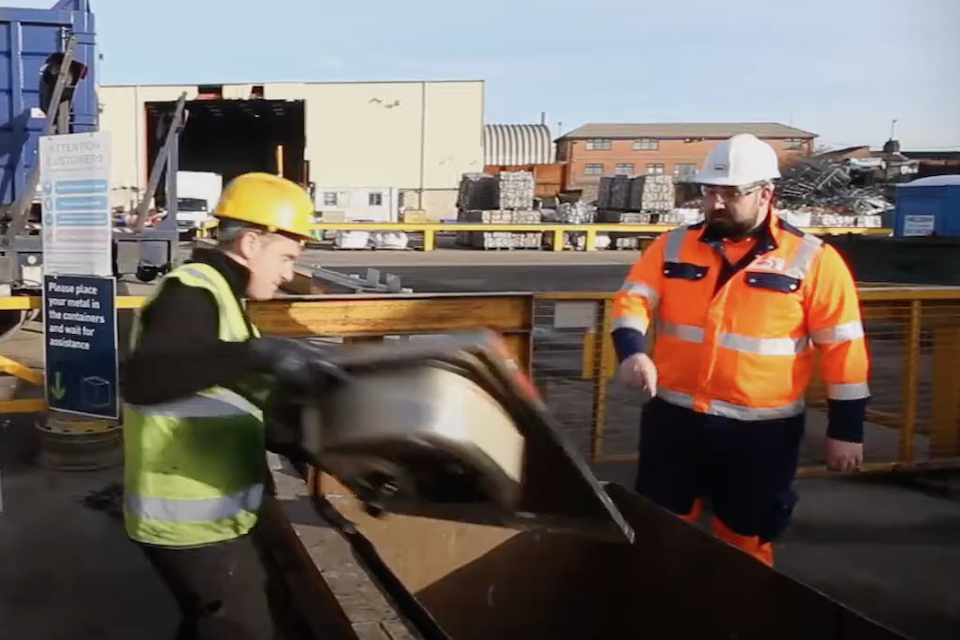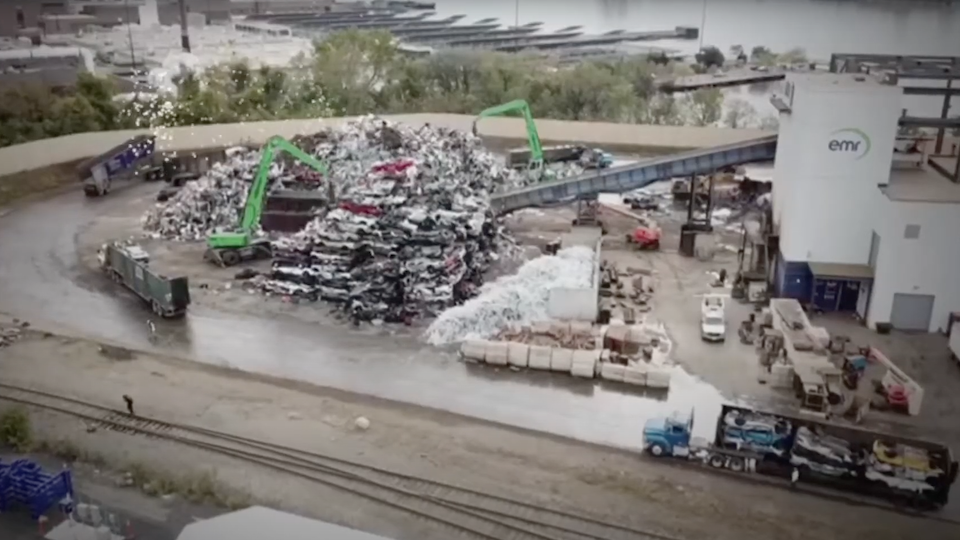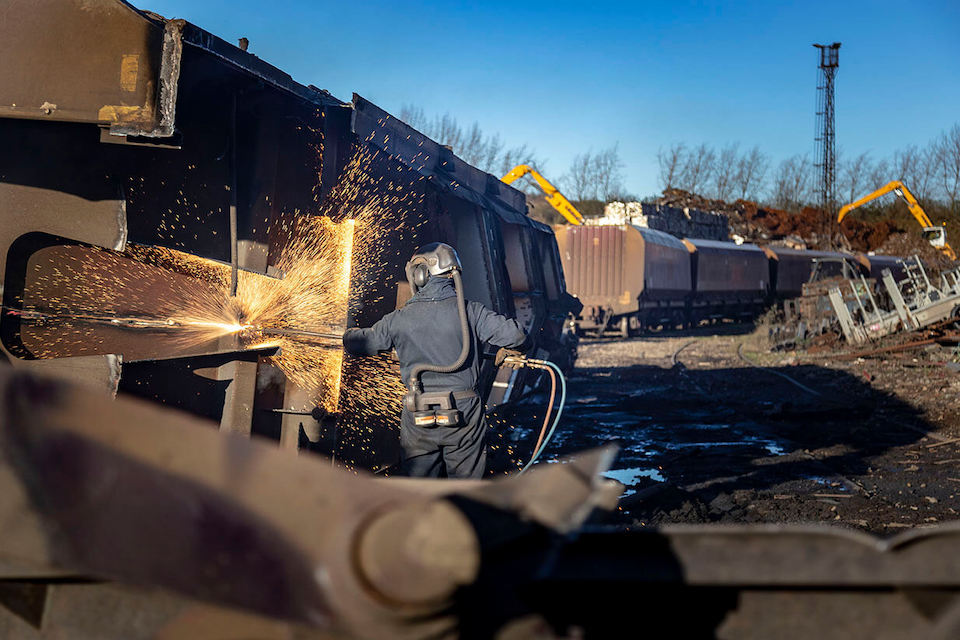European Metal Recycling backs a rail freight future

The UK firm European Metal Recycling has put its faith in rail freight as the company seeks to meet its net-zero target by 2040. European Metal Recycling, based in Warrington with operations all over the world, says it is working hard to integrate rail freight into even more fully into global operations.
The multi-national company says it already has a deep understanding of rail freight and the part it plays in making the metals and materials recycling business benefits from decarbonising their operations.
Export markets served by rail
In the UK, EMR already works closely with rail freight partners to move materials to deep-sea docks for export. Where possible, rail also provides the move between recycling plants and domestic customers too.
The company runs two rakes of 18 MBAs, simply known as Monster Boxes. The wagons have an individual capacity of 84 cubic meters and a potential payload of 72 tonnes. According to the company, each train EMR runs has a carrying capacity of around 1,300 tonnes.
Site efficiency improved by rail
With around forty road trips eliminated by each train, EMR says that not only reduces congestion on the roads, but makes their depots better neighbours. “Less congestion at our sites frees up our road weigh-bridges to provide faster service for customers who deliver their scrap to us”, said a statement. EMR run their trains six to seven times per week from sites such as Sheffield, Birmingham or Swindon into their Liverpool Docks site for shipping around the world. Liverpool has been a net beneficiary of rail freight, with traffic reviving at the port in recent years and the traffic from EMR a welcome addition.

DB Cargo, the rail service provider for EMR, has calculated that all rail freight in the UK avoided approximately seven million HGV journeys through 2018 to 2019. The carbon footprint of rail freight is significantly less than road and DB Cargo suggests EMR is saving around 8,000 tonnes of CO2 emissions thanks to the use of its rail freight services.
Hydrogen power on the cards
Steve Bareham, European Metal Recycling’s Director for the UK Southern Region, says this is an area of operations in which the company is keen to invest. “EMR is increasing the number of trains it will operate in the future to up to nine per week. That means a further reduction in our road use will help us to move yet closer to our ultimate aim of net-zero carbon impact”, he said. “It’s an area we’re investing in globally. Our latest shredder site in Becker, Minnesota, includes a new rail line to enable the business to load wagons for distribution across the country, again cutting the number of trucks needed to transfer material long distances”.

“While moving more material by rail makes sense for EMR, it is important to note that rail is not yet a fully net-zero method of transport. As technology progresses in the years ahead, we hope the arrival of hydrogen-powered trains and a decarbonised electricity supply for our rail networks will ensure that, by 2040, our use of rail is entirely carbon neutral.”
End of life handling for rail industry
EMR is also involved in the end-of-life end of the rail freight market. “Our expertise in handling waste metal from all rail infrastructure had led to long-standing relationships with stakeholders across the industry”, they told RailFreight.com.

“The size of our sites and our wide geographic coverage allows us to manage projects smoothly and effectively, whilst our rail linked yards and heavy duty weighing facilities mean we efficiently recycle rolling stock, infrastructure and rail components from a wide range of suppliers, including ROSCOs [rolling stock leasing companies], fleet operators and manufacturers.”
You just read one of our premium articles free of charge
Want full access? Take advantage of our exclusive offer




